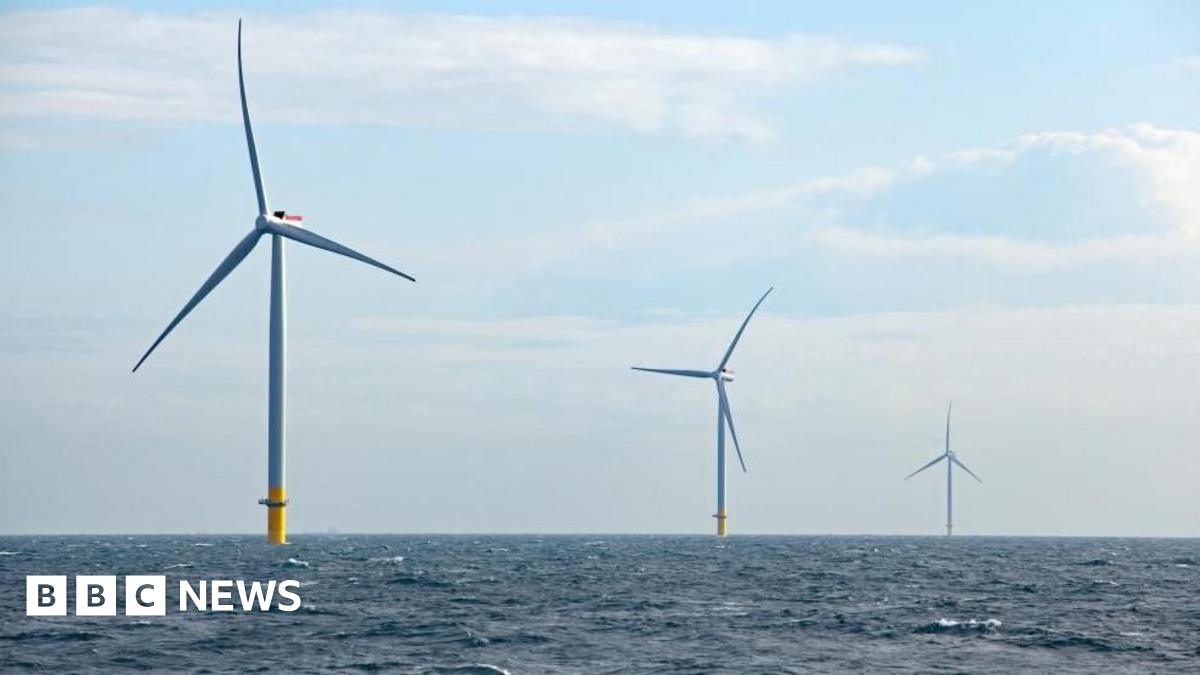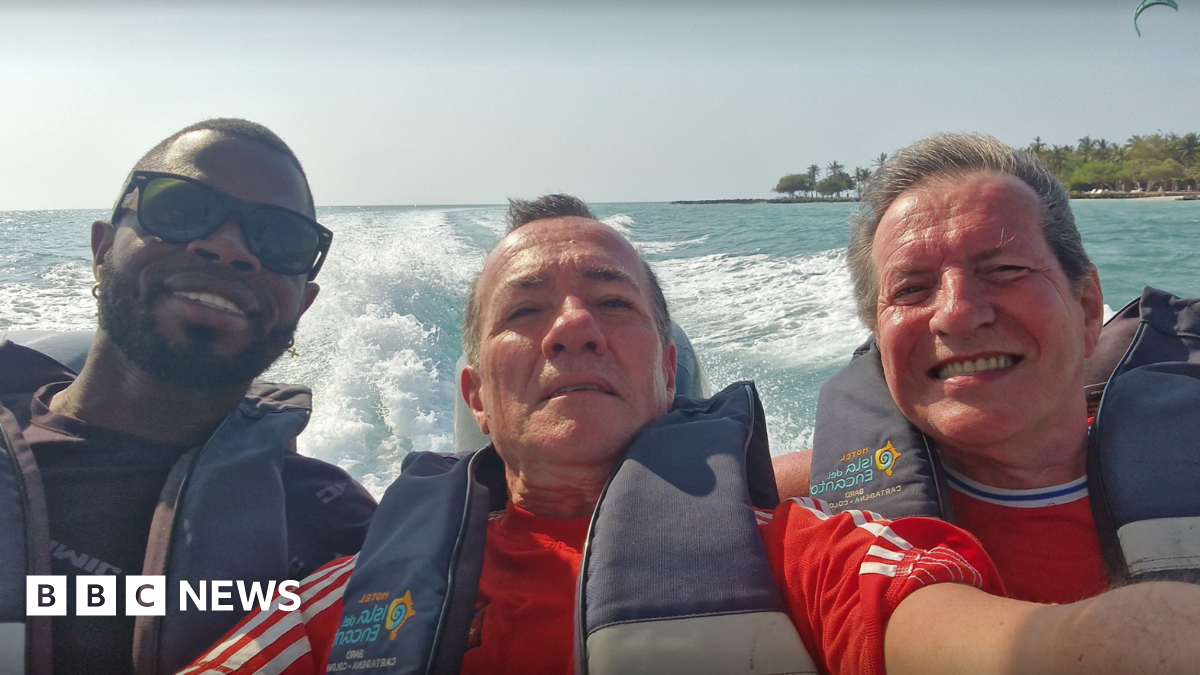Hornsea 4 Cancellation: Implications For The Future Of Offshore Wind

Welcome to your ultimate source for breaking news, trending updates, and in-depth stories from around the world. Whether it's politics, technology, entertainment, sports, or lifestyle, we bring you real-time updates that keep you informed and ahead of the curve.
Our team works tirelessly to ensure you never miss a moment. From the latest developments in global events to the most talked-about topics on social media, our news platform is designed to deliver accurate and timely information, all in one place.
Stay in the know and join thousands of readers who trust us for reliable, up-to-date content. Explore our expertly curated articles and dive deeper into the stories that matter to you. Visit Best Website now and be part of the conversation. Don't miss out on the headlines that shape our world!
Table of Contents
Hornsea 4 Cancellation: Implications for the Future of Offshore Wind
The recent cancellation of the Hornsea 4 offshore wind farm project sends shockwaves through the renewable energy sector, raising serious questions about the future of large-scale offshore wind development in the UK and beyond. This isn't just about one project; it highlights significant challenges facing the industry, from rising costs and supply chain issues to regulatory hurdles and grid connection complexities.
The Hornsea 4 Project: A Brief Overview
Hornsea 4, planned to be one of the world's largest offshore wind farms, was expected to generate enough clean energy to power millions of homes. Its cancellation, announced by developer Ørsted, marks a significant setback for the UK's ambitious renewable energy targets. The project, located off the Yorkshire coast, faced escalating costs driven by inflation and global supply chain disruptions impacting crucial components like turbines and cabling.
Key Factors Contributing to the Cancellation:
Several interconnected factors contributed to Ørsted's decision to axe Hornsea 4:
-
Soaring Inflation and Increased Material Costs: The global economic climate played a significant role. The dramatic increase in the price of steel, concrete, and other raw materials made the project financially unviable. This isn't unique to Hornsea 4; many large-scale infrastructure projects are facing similar pressures.
-
Supply Chain Disruptions: Delays in the delivery of crucial components further exacerbated cost overruns. The ongoing global supply chain crisis continues to impact numerous industries, and renewable energy is no exception. Securing timely delivery of turbines, cables, and other essential equipment proved increasingly difficult and expensive.
-
Grid Connection Challenges: Connecting massive offshore wind farms to the national grid is a complex and costly undertaking. Insufficient grid infrastructure and lengthy permitting processes added to the financial burden and timeline uncertainties, pushing the project beyond its acceptable risk profile. This highlights the critical need for proactive grid investment to support renewable energy expansion.
-
Regulatory Uncertainty: While the UK government has ambitious renewable energy targets, the regulatory environment surrounding offshore wind projects can be complex and unpredictable. Changes in policy or lengthy approval processes can significantly impact project feasibility and timelines.
Implications for the Future of Offshore Wind:
The cancellation of Hornsea 4 has significant implications for the future of offshore wind energy, raising concerns about:
-
Project Viability: The project's demise raises questions about the financial viability of future large-scale offshore wind farms, particularly in the current economic climate. Developers will need to carefully assess risks and develop robust financial models to mitigate potential cost overruns.
-
Investor Confidence: The cancellation could impact investor confidence in the offshore wind sector, potentially slowing down future project development. Clearer regulatory frameworks and a more stable economic environment are crucial to reassure investors.
-
Meeting Climate Goals: The UK, and other countries with ambitious renewable energy targets, face the challenge of finding alternative pathways to reach their climate goals in light of this setback. Diversification of renewable energy sources and a focus on streamlining project approvals are crucial.
Moving Forward: Addressing the Challenges:
The offshore wind industry needs to adapt to these challenges. This requires:
-
Strengthening Supply Chains: Diversifying supply chains and investing in domestic manufacturing capabilities can mitigate the impact of future disruptions.
-
Improving Grid Infrastructure: Significant investment in grid infrastructure is essential to facilitate the connection of future offshore wind farms.
-
Streamlining Regulatory Processes: Simplifying and accelerating the regulatory approval process can reduce project timelines and costs.
-
Innovative Financing Models: Exploring new financing mechanisms, such as green bonds and public-private partnerships, can help secure funding for large-scale projects.
The cancellation of Hornsea 4 serves as a stark reminder of the complexities involved in developing large-scale renewable energy projects. Addressing the challenges outlined above is crucial to ensuring the continued growth and success of the offshore wind sector and the global transition to clean energy. The future of offshore wind remains bright, but it requires proactive planning, robust financial models, and a collaborative effort between governments, developers, and investors.

Thank you for visiting our website, your trusted source for the latest updates and in-depth coverage on Hornsea 4 Cancellation: Implications For The Future Of Offshore Wind. We're committed to keeping you informed with timely and accurate information to meet your curiosity and needs.
If you have any questions, suggestions, or feedback, we'd love to hear from you. Your insights are valuable to us and help us improve to serve you better. Feel free to reach out through our contact page.
Don't forget to bookmark our website and check back regularly for the latest headlines and trending topics. See you next time, and thank you for being part of our growing community!
Featured Posts
-
 Rose Stuns In Sleek Tuxedo At The 2025 Met Gala
May 09, 2025
Rose Stuns In Sleek Tuxedo At The 2025 Met Gala
May 09, 2025 -
 Xatars Angeblicher Tod Die Hip Hop Welt Reagiert
May 09, 2025
Xatars Angeblicher Tod Die Hip Hop Welt Reagiert
May 09, 2025 -
 Mecz Swiatek Collins W Rzymie Termin Godzina I Gdzie Ogladac
May 09, 2025
Mecz Swiatek Collins W Rzymie Termin Godzina I Gdzie Ogladac
May 09, 2025 -
 Your Guide To Understanding The 2025 Met Galas History And Significance
May 09, 2025
Your Guide To Understanding The 2025 Met Galas History And Significance
May 09, 2025 -
 Mans Remains Found In Bristol Suitcase Rape And Blackmail Allegations Emerge
May 09, 2025
Mans Remains Found In Bristol Suitcase Rape And Blackmail Allegations Emerge
May 09, 2025
Latest Posts
-
 Live Stream And Tv Broadcast Details Arango Vs Andreeva At The 2025 Internazionali Bnl D Italia
May 09, 2025
Live Stream And Tv Broadcast Details Arango Vs Andreeva At The 2025 Internazionali Bnl D Italia
May 09, 2025 -
 Xatar Tot Fans Nehmen Abschied Von Dem Erfolgreichen Musiker
May 09, 2025
Xatar Tot Fans Nehmen Abschied Von Dem Erfolgreichen Musiker
May 09, 2025 -
 Andreeva Dominates Arango In Rome Raducanu Moves On
May 09, 2025
Andreeva Dominates Arango In Rome Raducanu Moves On
May 09, 2025 -
 Peluang Besar Persebaya Untuk Menang Atas Semen Padang
May 09, 2025
Peluang Besar Persebaya Untuk Menang Atas Semen Padang
May 09, 2025 -
 Film Mosul Sinopsis Lengkap Dan Jadwal Tayang Di Bioskop Trans Tv 9 Mei 2025
May 09, 2025
Film Mosul Sinopsis Lengkap Dan Jadwal Tayang Di Bioskop Trans Tv 9 Mei 2025
May 09, 2025 -
 Film Pilihan Trans Tv Jadwal Tayang Dan Sinopsis 9 Mei 2025
May 09, 2025
Film Pilihan Trans Tv Jadwal Tayang Dan Sinopsis 9 Mei 2025
May 09, 2025 -
 Dua Laga Penting Dewa United Esports Tantangan Pekan Ini
May 09, 2025
Dua Laga Penting Dewa United Esports Tantangan Pekan Ini
May 09, 2025 -
 Four In Ten Universities Struggle Financially A Growing Crisis
May 09, 2025
Four In Ten Universities Struggle Financially A Growing Crisis
May 09, 2025 -
 Cek Bansos Pkh 2025 Online Langkah Mudah Via Hp Dengan Nik Ktp
May 09, 2025
Cek Bansos Pkh 2025 Online Langkah Mudah Via Hp Dengan Nik Ktp
May 09, 2025 -
 Perkuat Kolaborasi Pemerintah Dorong Keberhasilan Koperasi Desa Merah Putih
May 09, 2025
Perkuat Kolaborasi Pemerintah Dorong Keberhasilan Koperasi Desa Merah Putih
May 09, 2025
